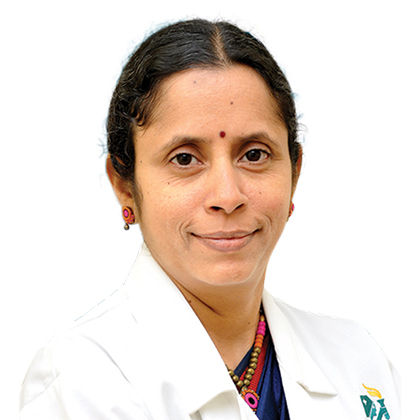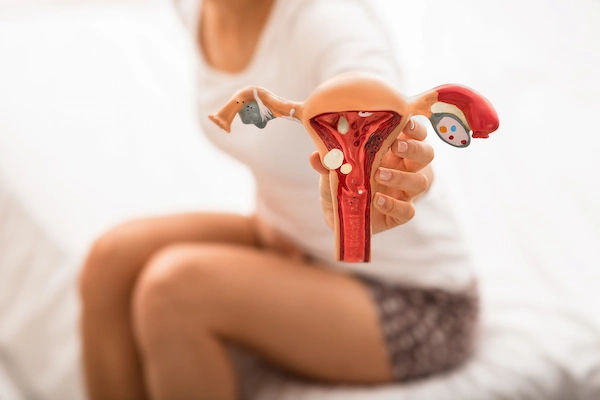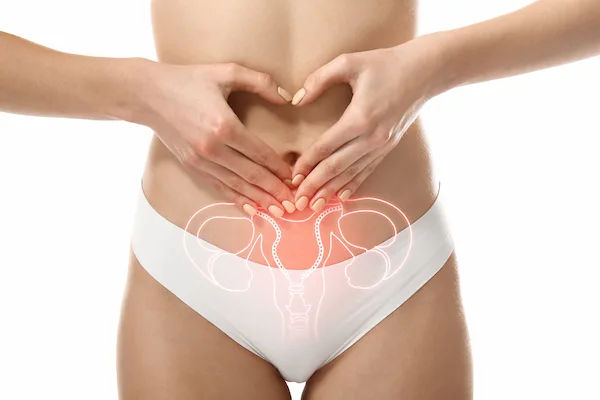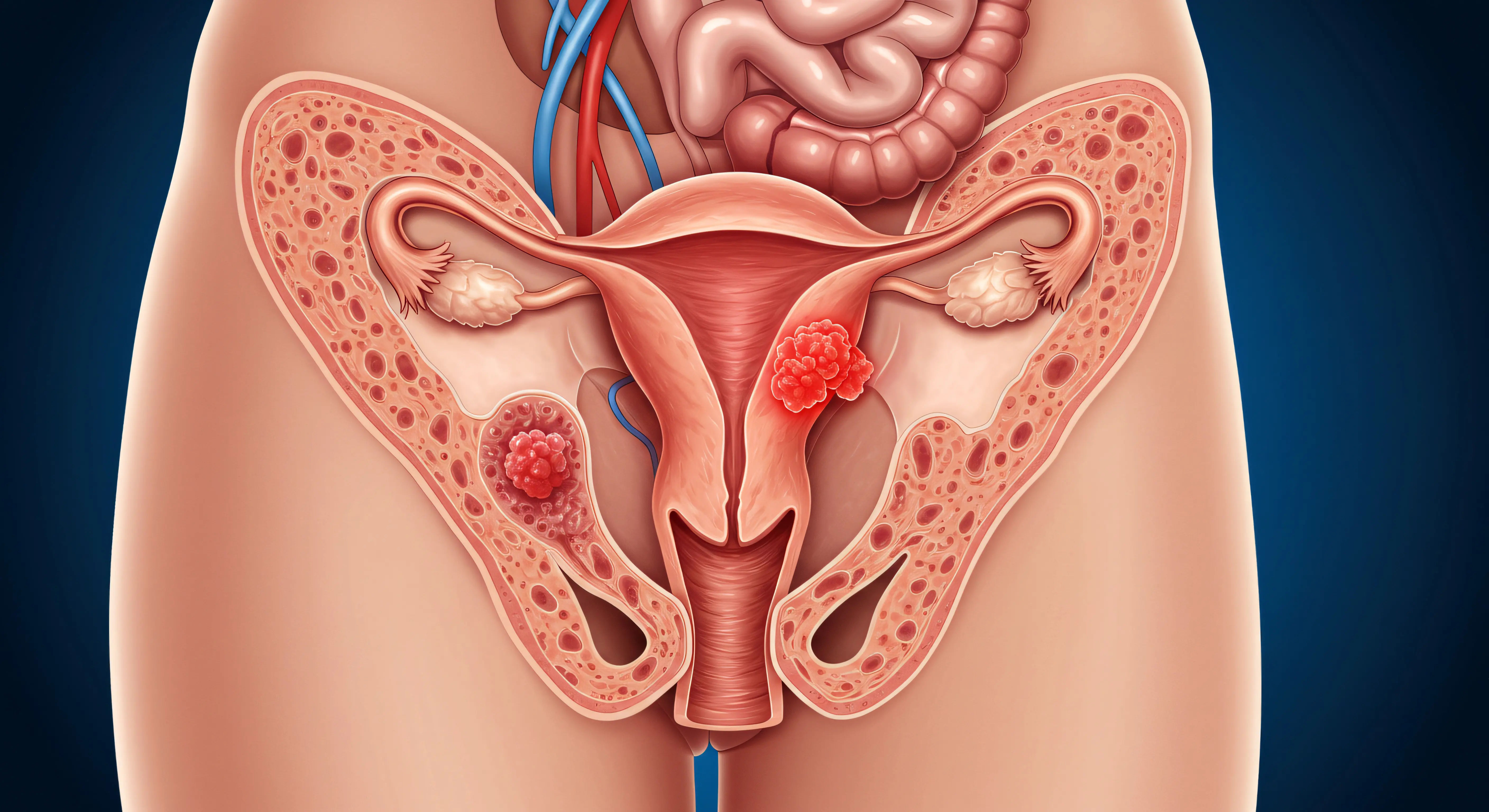Increased Bowel Movements After Hysterectomy
Experiencing frequent bowel movements after a hysterectomy? Learn the possible causes, how long it lasts, and the best ways to manage and relieve symptoms naturally.

Written by Dr. Shaik Abdul Kalam
Reviewed by Dr. Dhankecha Mayank Dineshbhai MBBS
Last updated on 13th Jan, 2026

Introduction
Undergoing a hysterectomy (surgical removal of the uterus) is a major procedure that can bring about several changes in your body, including bowel habits. Some women experience increased bowel movements or diarrhoea after surgery, which can be concerning. If you're going through this, know you're not alone—and there are ways to manage it effectively.
Why Do Bowel Movements Increase After a Hysterectomy?
Several factors can contribute to changes in bowel function following a hysterectomy:
Surgical Impact on Nearby Organs: The uterus is located close to the intestines and bladder. During surgery, these organs may be disturbed or repositioned, temporarily affecting digestion.
Anaesthesia and Medications: Painkillers, antibiotics, and anaesthesia used during and after surgery can disrupt gut flora or stimulate the bowels.
Nerve Sensitivity: Surgery may impact nerves involved in bowel control, causing increased urgency or frequency.
Dietary Changes: A shift to lighter, post-surgical diets (soups, juices, low-fibre meals) can affect stool consistency and frequency.
Stress and Recovery: Emotional and physical stress after surgery can directly impact the digestive system, sometimes leading to bowel irregularities.
Common Symptoms You Might Experience
More frequent bowel movements than usual
Loose stools or diarrhoea
Abdominal cramping or discomfort
Bloating or excess gas
Sudden urgency to use the toilet
How Long Does It Last?
Increased bowel movements are typically temporary and improve within a few weeks as your body adjusts and heals. However, if symptoms last longer than a month or worsen, it’s best to consult a doctor.
Tips to Manage Increased Bowel Movements
Here are some practical tips to help you manage increased bowel movements after a hysterectomy and support your digestive recovery:
1. Eat a Balanced Diet
Adopt a gut-friendly diet that supports healing and soothes digestion.
Reduce fibre short-term: Limit high-fibre foods (e.g., raw veggies, beans, bran) during bouts of diarrhoea.
Try the BRAT diet: Bananas, Rice, Applesauce, and Toast help firm up stools.
Probiotics: Include probiotic-rich foods like yoghurt or take a daily probiotic supplement.
Stay hydrated: Drink plenty of water and oral rehydration fluids to prevent dehydration.
2. Avoid Trigger Foods
Certain foods can irritate your digestive system during recovery.
Skip spicy, greasy, fried, or processed foods
Limit or avoid caffeine and alcohol, which may worsen diarrhoea
Consult Specialists For Tips To Manage Bowel Movement
3. Gentle Movement
Physical activity helps stimulate regular bowel movements without overexertion.
Take short daily walks to boost digestion
Avoid strenuous activity or heavy lifting until cleared by your doctor
4. Manage Stress
Your gut and brain are closely connected, so emotional stress can aggravate symptoms.
Practice deep breathing, guided meditation, or gentle yoga
Prioritise rest and sleep to support recovery
5. Medications (If Needed)
Over-the-counter remedies like loperamide (Imodium) may help manage diarrhoea
Always consult your doctor before taking new medications, especially post-surgery
When to See a Doctor
While temporary digestive changes are normal, contact a healthcare provider if you notice:
Persistent or severe diarrhoea lasting more than 7–10 days
Blood in your stool
High fever or signs of infection
Unexplained weight loss
Severe abdominal pain or bloating
These could be signs of complications, such as infection, bowel obstruction, or an unrelated gastrointestinal issue.
Conclusion
Increased bowel movements after a hysterectomy are not uncommon and are usually temporary. Dietary changes, stress, and medications often play a role. With proper care, most women see improvements within a few weeks. If symptoms persist or worsen, don’t hesitate to seek medical attention.
If you're experiencing prolonged digestive issues after a hysterectomy, consider consulting a specialist. You can book an appointment with a gynaecologist or gastroenterologist through Apollo 24|7 for expert, personalised guidance.
Consult Top Gynaecologists
Consult Specialists For Tips To Manage Bowel Movement

Dr. Abhishek Daga
Obstetrician and Gynaecologist
20 Years • MBBS, MS (Obstetrics & Gynaecology)
Kolkata
Gynae Care Fertility Centre, Kolkata
(150+ Patients)

Dr. Asawari Kesari Kapoor
Obstetrician and Gynaecologist
23 Years • M.B.B.S, D.G.O(Mumbai) ,D.G.O (C.P.S), D.N.B (OBGY)
Delhi
Apollo Hospitals Indraprastha, Delhi
(25+ Patients)

Dr. Sravanthi Pandala
Obstetrician and Gynaecologist
9 Years • MBBS, MMS(OBG).,FMAS.,F.ART.,DRM(Germany).,
Nellore
Apollo Speciality Hospitals, Nellore
(100+ Patients)

Dr. Lavanya S
Obstetrician and Gynaecologist
14 Years • MBBS., MD(Obstetrics & Gynaecology)
Nellore
Apollo Speciality Hospitals, Nellore
(150+ Patients)

Dr. Rituparna De
Obstetrician and Gynaecologist
7 Years • MBBS, MS (Obstetrics & Gynaecology)
Kolkata
MCR SUPER SPECIALITY POLY CLINIC & PATHOLOGY, Kolkata
Consult Top Gynaecologists

Dr. Abhishek Daga
Obstetrician and Gynaecologist
20 Years • MBBS, MS (Obstetrics & Gynaecology)
Kolkata
Gynae Care Fertility Centre, Kolkata
(150+ Patients)

Dr. Asawari Kesari Kapoor
Obstetrician and Gynaecologist
23 Years • M.B.B.S, D.G.O(Mumbai) ,D.G.O (C.P.S), D.N.B (OBGY)
Delhi
Apollo Hospitals Indraprastha, Delhi
(25+ Patients)

Dr. Sravanthi Pandala
Obstetrician and Gynaecologist
9 Years • MBBS, MMS(OBG).,FMAS.,F.ART.,DRM(Germany).,
Nellore
Apollo Speciality Hospitals, Nellore
(100+ Patients)

Dr. Lavanya S
Obstetrician and Gynaecologist
14 Years • MBBS., MD(Obstetrics & Gynaecology)
Nellore
Apollo Speciality Hospitals, Nellore
(150+ Patients)

Dr. Rituparna De
Obstetrician and Gynaecologist
7 Years • MBBS, MS (Obstetrics & Gynaecology)
Kolkata
MCR SUPER SPECIALITY POLY CLINIC & PATHOLOGY, Kolkata




